Educational psychology is a wide-ranging, far-reaching and rewarding career, dedicated to supporting the learning and developmental needs of children. The strategic input of educational psychologists (EPs) is essential in shaping schooling environments and the learning experiences of young people.
With UK families facing a cost of living crisis and education facilities playing catch-up from the ‘lost learning’ months of the pandemic, the British Psychological Society (BPS) notes a growing demand for guidance from these trained professionals, who work to improve both the cognitive development and psychological wellbeing of 0-25 year-olds.
Lending their specialised perspective, the work of educational psychologists spans a wide range of learners, contexts and situations. A combination of direct assessment (such as observations and counselling sessions) and consultations with teachers, social services and other outside agencies, assists practitioners in their primary aim of developing effective intervention strategies that best support the child’s learning and social, emotional and behavioural development.
Applying theoretical knowledge and research, educational psychologists are able to collaborate with teachers, families and other support services to deliver programmes and provisions that enact positive change, aid vulnerable children and overcome barriers to learning.
Educational psychologists may be assigned to work with:
- Children and young adults with learning disabilities and special needs
- Young people from disadvantaged backgrounds
- Children who have experienced emotional traumas
- Students exhibiting social and behavioural challenges
With the educational landscape becoming more diverse, it’s important for educational psychologists to consider the differing needs and demands of students, from cultural, racial and religious contexts to alternating learning styles.
Understanding familial dynamics often creates a context for individual difficulties and strengths, which is why educational psychologists balance individual counselling with wider familial liaisons.
In today’s digital age, educational psychologists may also be tasked with helping teachers integrate new technologies into the classroom, and adapting their lesson plans for children with developmental delays.
What are some of the difficulties in being an educational psychologist?
Educational psychologists carry a lot of responsibility. When working with children and young people, needs and demands can be vast – and it’s essential that EPs get it right.
Exposed to the many vulnerabilities, challenges and hardships facing today’s children, from poverty through to neglect, the role requires immense compassion, sensitivity and care.
In some cases, educational psychologists may be required to attend child protection conferences, and lend key insights on whether the child would be safer if put into care. This line of decision-making greatly impacts the lives of families, and it can be immensely challenging for practitioners to navigate.
In preparation for the role, training courses are often rigorous and demanding. On the job, reconciling the demands of local authorities can be limiting and frustrating, while politics within wider policy development can also present barriers to change.
But regardless of the challenges, there are many benefits to this profession too. It’s a valued, varied and in-demand line of practice that has a lasting impact on the growth, development and wellbeing of a wide range of service users.
What jobs are in educational psychology?
Educational psychologists work within a diverse range of settings. They are usually employed by local authorities and work within the public sector, from schools and college-age children right through to nurseries.
They may also be assigned to special units, such as the NHS Child and Adolescent Mental Health Services (CAMHS), volunteer organisations and social enterprises. As such, there are many roles and career pathways within this field.
Educational Psychologist
As we’ve covered, an educational psychologist works with outside agencies, educational institutions, families and children to adjust and improve their learning experiences. They support the child on a direct level (through counselling, assessments and personalised intervention strategies), and influence the wider educational systems supporting the child (such as inclusion policies).
The key responsibilities of an educational psychologist include:
- Assessing a child’s learning, development and social, emotional and behavioural needs
- Designing, developing and supporting projects, programmes, provisions and intervention strategies that will benefit the child’s wellbeing and development
- Advise, support and negotiate with teachers, parents and outside agencies and, in some cases, attend social services conferences
Educational Researcher
The work of an educational researcher goes one step further, examining the educational landscape itself. These practitioners examine the learning process, conducting studies that yield information regarding particular aspects of education. This can help provide great insight into the issues, challenges and barriers facing modern education systems.
Educational researchers collect and analyse data from wide-ranging sources, such as focus groups, individual case studies and classroom observations. This data then guides best practice and informs the design and development of new training or instructional programmes. Essentially, the work of an educational researcher helps to shape what is taught in schools.
School or College Counsellor
Practitioners are typically based on campus and are tasked with providing a professional and confidential counselling service to children and young people.
Counsellors are responsible for helping students process their thoughts, feelings and experiences – and anything else that may impact their learning environment – while equipping them with tools and coping strategies that promote their emotional health and wellbeing and build resilience.
Counsellors help students cope with the difficulties they face – both in life and within education. At school age, this may relate to issues at home, developmental delays or a struggle to make friends – while college students might be navigating new parenthood alongside the stress of exams.
Counsellors are equipped to guide service users through a whole host of stressors, whether they manifest as emotional distresses, mental illnesses, social issues or health problems.
Other key responsibilities include:
- Helping students develop academic plans that compliment their skills and strengths
- Facilitating crisis intervention and prevention programmes
- Aiding school staff in the planning and implementation of programmes and events
Exercising active listening, immense empathy and a pragmatic approach, counsellors often leave a lasting impression on their caseload, and play a key part in informing their school experiences.
Play your part in shaping the education landscape. Start your career in psychology today.
This wide-ranging online degree in MSc Psychology will cover modules in health, forensic, clinical and educational psychology, equipping you with a broad foundation of knowledge to apply to various contexts.
On the course, you’ll gain an overview of contemporary emerging technologies and techniques applied within psychological research; an understanding of core neuropsychological principles and assumptions and contemporary perspectives on key neurological disorders that may be encountered in practice; the knowledge to approach quantitative methods and analysis in psychology – and much more.
Furthermore, you’ll develop a range of skills increasingly sought after by major employers, including data analysis skills, statistical and computer literacy, critical appraisal, and research skills.
Sign up today and start your career in this rewarding and sought-after profession.




